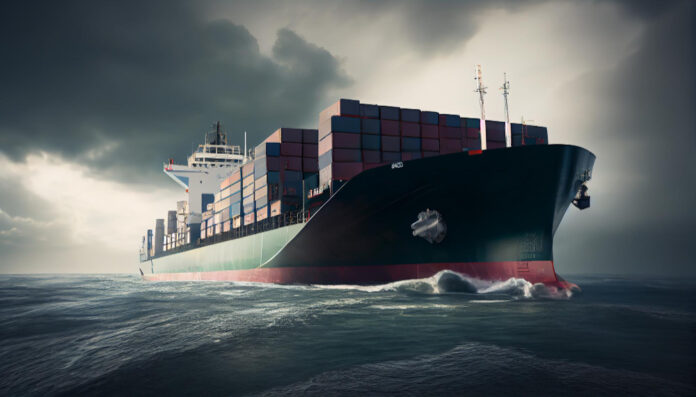In today’s fast-paced global economy, freight is the silent engine powering everything from your morning coffee delivery to the launch of new smartphones. Whether it’s a small package shipped across town or massive containers crossing oceans, the freight industry plays a crucial role in making the modern world function smoothly.
What is Freight?
Freight refers to goods transported in bulk by truck, train, ship, or aircraft. It’s the system that connects manufacturers to markets, suppliers to businesses, and e-commerce stores to your front door. Without freight logistics, entire economies would come to a halt.
The Main Modes of Freight Transportation
- Road Freight – Ideal for domestic and last-mile delivery. Trucks provide flexibility and can reach remote areas.
- Rail Freight – Cost-effective for transporting heavy goods over land, especially long distances.
- Air Freight – Fastest mode for high-value or time-sensitive cargo, though more expensive.
- Sea Freight – The cornerstone of international trade, handling over 80% of global trade by volume.
Why Freight Matters
- Global Connectivity: Freight links continents, creating access to international markets.
- Economic Growth: It drives job creation and GDP through manufacturing, warehousing, and transportation.
- Consumer Convenience: Same-day delivery? Thank freight logistics.
- Supply Chain Stability: Efficient freight systems prevent stockouts and delays, crucial for industries like healthcare and food.
Challenges Facing the Freight Industry
- Rising Fuel Costs: A direct hit to operational budgets.
- Driver Shortages: Especially in road freight, there’s a growing gap between demand and available labor.
- Sustainability Pressure: The push toward greener logistics requires innovation and investment.
- Technological Change: Automation, AI, and real-time tracking are transforming operations—but not without growing pains.
The Future of Freight
The industry is rapidly evolving with technologies like electric trucks, autonomous vehicles, smart warehousing, and blockchain for supply chain transparency. Sustainability is also a top priority, with companies investing in carbon offsetting, route optimization, and alternative fuels.
Types of Freight Services
- Full Truckload (FTL): Best for large shipments that fill an entire trailer.
- Less Than Truckload (LTL): Ideal for smaller shipments that share space with other freight.
- Intermodal Freight: Uses multiple modes of transportation (e.g., truck and rail) for cost savings and efficiency.
- Expedited Freight: Prioritized shipping for urgent or time-sensitive deliveries.
Key Players in the Freight Industry
- Freight Forwarders: Coordinate logistics, including customs and documentation, especially for international shipments.
- Third-Party Logistics Providers (3PLs): Offer warehousing, transportation, and order fulfillment for businesses.
- Carriers: Companies that own the transportation assets—trucks, ships, trains, or planes.
- Shippers: The individuals or companies sending out the goods.
Freight and E-Commerce
Technology in Freight
- Telematics and GPS Tracking: Enhance route planning, vehicle maintenance, and driver safety.
- Artificial Intelligence: Enables demand forecasting, dynamic pricing, and risk prediction.
- Blockchain: Improves supply chain transparency, reduces fraud, and streamlines documentation.
- IoT Devices: Monitor cargo conditions like temperature, humidity, or shock during transit.
Sustainability in Freight
- Electric and Hybrid Vehicles: Reduce emissions and meet regulatory goals.
- Carbon Offset Programs: Help companies meet sustainability targets by supporting environmental initiatives.
- Eco-Friendly Packaging: Minimizes waste and improves recyclability.
- Route Optimization Software: Reduces fuel consumption by minimizing mileage and idle time.
Post-Pandemic Challenges
- Port Congestion: Global trade continues to face delays due to backlogs at major ports.
- Equipment Shortages: Container and chassis shortages are still affecting capacity.
- Labor Constraints: Ongoing driver shortages and labor disputes are straining resources.
- Global Instability: Conflicts, trade policies, and fuel price volatility impact reliability and cost.
Emerging Trends in Freight
- Autonomous Freight Vehicles: Self-driving trucks and delivery robots are in development for increased safety and efficiency.
- Drone Deliveries: Especially useful for remote or rural areas.
- Digital Freight Platforms: “Uber-style” load boards are simplifying how shippers connect with carriers.
- Advanced Customs Tech: Speeds up international trade with automated compliance checks and documentation.
Conclusion
Freight may not always be visible, but it’s vital. Every item you buy, sell, or use has traveled a journey—often across borders and continents—thanks to the complex, ever-evolving freight industry. As the world grows more connected and consumers demand faster service, the importance of freight will only increase.































